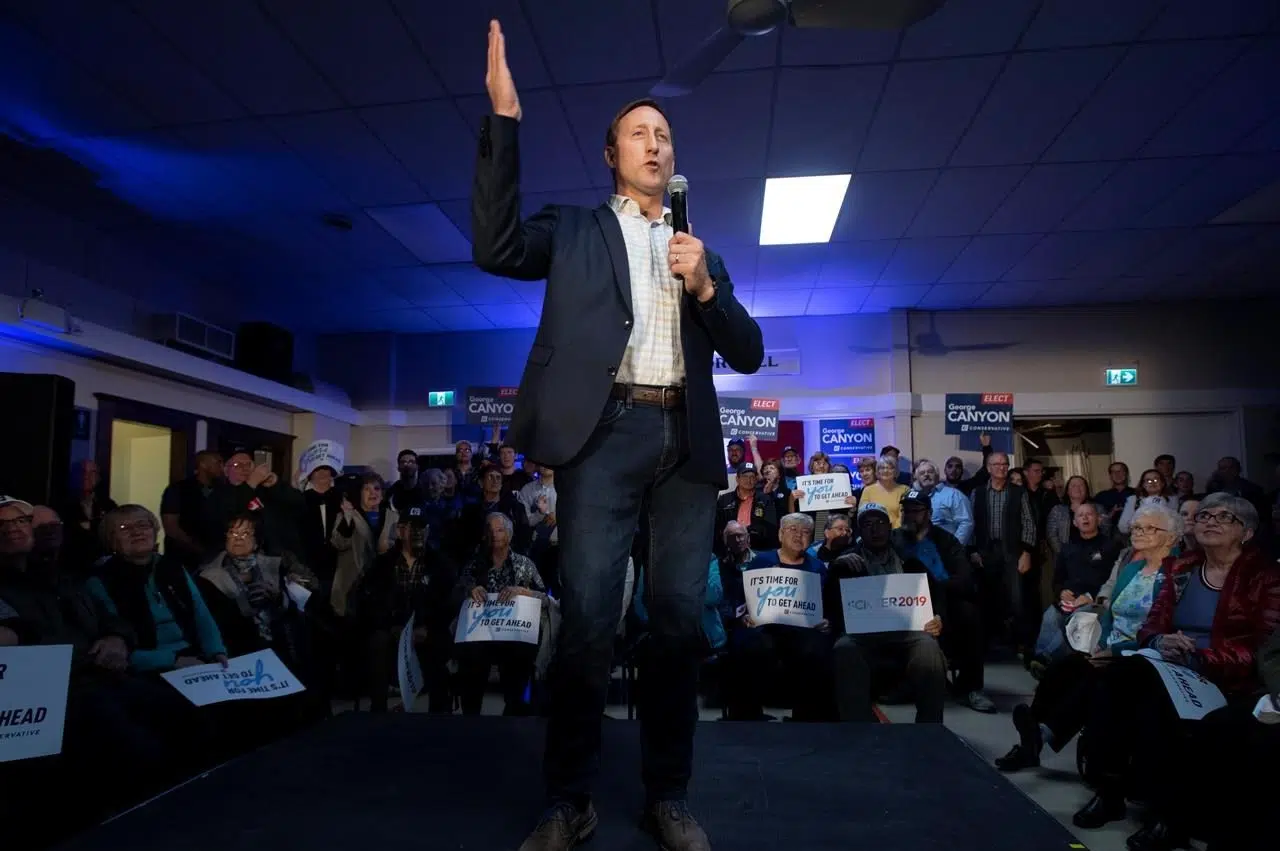OTTAWA – One-time and possible future leadership contender Peter MacKay says the “stinking albatross” of Andrew Scheer’s social conservative values cost the Conservatives the election.
He offered the devastating critique of Scheer’s campaign performance during a panel discussion Wednesday hosted by the Wilson Center in Washington.
“To use a good Canadian analogy, it was like having a breakaway on an open net and missing the net,” MacKay said.
An increasing number of Conservatives, disappointed that Scheer was unable to defeat the Trudeau Liberals, have begun openly calling for him to resign and make way for a new leader who can expand the party’s base and gain more traction in Ontario and Quebec. MacKay – who briefly led the Progressive Conservatives before they merged with the Canadian Alliance to form today’s Conservative party – is prominent among those named as a potential successor.
Until now, the former cabinet minister has played down talk of a future leadership bid, insisting that he’s fully supportive of Scheer.
But MacKay was blunt Wednesday in laying the blame for last week’s loss on Scheer’s inability to reassure Canadians that he wouldn’t impose his own religious and social conservative values on the country. And that left Scheer unable to take advantage of the Liberals’ vulnerability, despite a “litany” of controversies dogging Prime Minister Justin Trudeau.
“What went wrong? Well, I’m going to be very honest with you,” MacKay said.
“I think there was a number of issues that became very prevalent in this election that nobody other than the politicos wanted to talk about. People did not want to talk about women’s reproductive rights, and they didn’t want to talk about revisiting the issue of same-sex marriage.
“And yet that was thrust onto the agenda and hung around Andrew Scheer’s neck like a stinking albatross, quite frankly, and he wasn’t able to deftly deal with those issues when opportunities arose.”
Despite Scheer’s repeated assurances that a Conservative government would not reopen either the abortion or same-sex marriage issues, MacKay said the issues created “a nervousness” among voters, particularly women.
MacKay also criticized Scheer’s campaign for failing to “seize the agenda” with a big idea. Scheer’s proposal to create a cross-country energy corridor could have been one such idea but it “didn’t really catch on.” It was a “compelling idea,” MacKay said, but Scheer “didn’t fill in the blanks.”
Scheer’s proposal to use technology, rather than taxes, to deal with climate change could have been another big idea. But the pace of modern campaigns makes it difficult for such ideas to gain much traction, MacKay said.
In the end, he said Canadians weren’t inspired by either the Conservatives or the Liberals.
The Conservatives won 121 seats – 22 more than they took in 2015 – and came out marginally ahead of the Liberals in the popular vote, largely due to overwhelming support in Alberta and Saskatchewan. However, they failed to make the hoped-for gains in Quebec, Ontario and Atlantic Canada.
Trudeau emerged with 157 seats, 13 shy of a majority.
The Canadian Press







